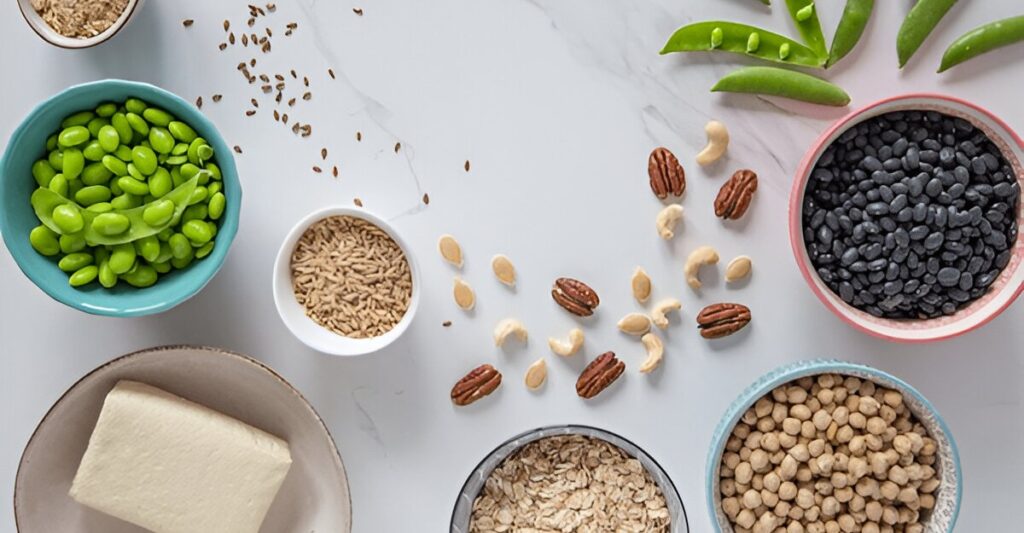For athletes striving to push their limits, nutrition is only part of the equation. Advanced supplementation strategies for athletes can optimize performance, accelerate recovery, and support long-term health. While a balanced diet lays the foundation, targeted supplements address specific needs that food alone may not meet, especially under the demands of intense training. This article dives into the science behind supplementation, highlights key supplements for athletes, and offers practical strategies to integrate them effectively, all tailored to help you achieve peak performance.
Why Supplementation Matters for Athletes
Athletes face unique physiological demands—higher energy expenditure, increased muscle damage, and greater nutrient needs. Supplementation strategies for athletes bridge gaps in nutrition, enhance adaptation to training, and reduce the risk of deficiencies. However, not all supplements are created equal. The key is choosing evidence-based options and timing them strategically to align with your goals, whether it’s strength, endurance, or recovery.
Key Supplements for Athletes
Research from sports science, including studies in Journal of the International Society of Sports Nutrition, points to several supplements with proven benefits. Here are the top options and how they fit into advanced supplementation strategies for athletes.
1. Protein Powder
Protein is essential for muscle repair and growth. While whole foods like chicken or eggs are ideal, protein powders offer convenience and rapid absorption, especially post-workout.
Benefits:
- Supports muscle protein synthesis
- Aids recovery after intense exercise
- Convenient for meeting high protein needs
Best Choices:
- Whey protein (fast-digesting, ideal post-workout)
- Casein (slow-digesting, great before bed)
- Plant-based blends (pea, rice, or hemp for vegans)
Pro Tip: Aim for 20-30 grams of protein within 30-60 minutes post-workout to maximize muscle repair.
2. Creatine Monohydrate
Creatine is one of the most researched supplements, shown to enhance strength, power, and muscle mass. It increases phosphocreatine stores, fueling short, high-intensity efforts.
Benefits:
- Boosts performance in sprints and weightlifting
- Enhances muscle recovery
- May improve cognitive function under fatigue
Dosage:
- Loading phase (optional): 20 grams/day (split into 4 doses) for 5-7 days
- Maintenance: 3-5 grams/day, ideally post-workout with carbs
Pro Tip: Mix creatine with a carb source like juice to enhance uptake.
3. Branched-Chain Amino Acids (BCAAs) or Essential Amino Acids (EAAs)
BCAAs (leucine, isoleucine, valine) and EAAs stimulate muscle protein synthesis and reduce muscle breakdown, especially during prolonged exercise.
Benefits:
- Reduces muscle soreness
- Supports endurance during long sessions
- Useful when training fasted
Best Use:
- Sip 5-10 grams during workouts or take pre-workout
- Prioritize EAAs if you’re not consuming enough dietary protein
Pro Tip: Choose products with at least 2 grams of leucine per serving for optimal benefits.
4. Beta-Alanine
Beta-alanine buffers acid in muscles, delaying fatigue during high-intensity efforts lasting 1-4 minutes, like interval training or CrossFit.
Benefits:
- Improves performance in high-intensity exercise
- Increases muscle endurance
- Enhances training volume
Dosage:
- 3-6 grams/day, split into 1-2 gram doses to avoid tingling (paresthesia)
Pro Tip: Take with meals to minimize side effects and improve absorption.
5. Omega-3 Fatty Acids
Omega-3s (EPA and DHA) from fish oil reduce inflammation, support joint health, and enhance recovery, critical for athletes under repetitive stress.
Benefits:
- Reduces exercise-induced inflammation
- Supports cardiovascular health
- May improve reaction time
Dosage:
- 1-3 grams of combined EPA/DHA daily, with meals
Pro Tip: Look for high-potency fish oil with third-party testing for purity.
6. Vitamin D and Magnesium
Vitamin D and magnesium are often deficient in athletes, impacting performance and recovery. Vitamin D supports bone health and immunity, while magnesium aids muscle function and energy production.
Benefits:
- Enhances muscle strength and recovery
- Supports immune function
- Reduces cramping and fatigue
Dosage:
- Vitamin D: 2,000-4,000 IU/day, with fat-containing meals
- Magnesium: 200-400 mg/day, ideally as magnesium citrate or glycinate
Pro Tip: Get blood tests to check vitamin D levels and tailor your dose.
Advanced Supplementation Strategies for Athletes
To maximize the benefits of supplements, integrate them strategically into your routine. Here are advanced supplementation strategies for athletes to optimize timing, synergy, and effectiveness:
1. Time Supplements Around Training
Timing enhances supplement efficacy:
- Pre-Workout: Take beta-alanine or BCAAs 30 minutes before to boost endurance.
- Intra-Workout: Sip BCAAs or EAAs during long sessions to reduce muscle breakdown.
- Post-Workout: Combine whey protein and creatine within 30-60 minutes to support recovery and muscle growth.
Pro Tip: Pair post-workout protein with a carb source (e.g., fruit) to replenish glycogen and enhance absorption.
2. Cycle Supplements for Optimal Results
Avoid supplement overuse by cycling certain products:
- Creatine: Take for 8-12 weeks, then pause for 4 weeks to maintain sensitivity.
- Beta-Alanine: Use for 4-8 weeks during high-intensity training blocks, then take a break.
- BCAAs/EAAs: Prioritize during cutting phases or fasted training, reducing use when protein intake is high.
Pro Tip: Track performance metrics (e.g., strength, endurance) to assess supplement impact.
3. Personalize Based on Goals and Needs
Tailor supplementation to your sport and goals:
- Strength Athletes: Prioritize creatine, protein, and magnesium for power and recovery.
- Endurance Athletes: Focus on beta-alanine, BCAAs, and omega-3s for stamina and inflammation control.
- Team Sports: Combine creatine, vitamin D, and protein for explosiveness and resilience.
Pro Tip: Consult a sports dietitian to customize your regimen based on bloodwork or training demands.
4. Stack Supplements for Synergy
Certain supplements work better together:
- Creatine + Protein: Enhances muscle growth and recovery.
- Omega-3s + Vitamin D: Boosts anti-inflammatory effects and immunity.
- Magnesium + Protein: Supports muscle relaxation and repair.
Pro Tip: Avoid overloading by stacking no more than 2-3 supplements at once.
5. Focus on Quality and Safety
Choose high-quality supplements to ensure purity and efficacy:
- Look for third-party testing (e.g., NSF Certified for Sport, Informed-Sport).
- Check ingredient labels for minimal fillers or artificial additives.
- Avoid proprietary blends that hide dosages.
Pro Tip: Buy from reputable brands and verify certifications to avoid contaminated products.
Sample Supplementation Plan for an Athlete
Here’s a daily plan for a strength athlete training 5 days/week:
- Morning: 2,000 IU vitamin D + 1 g omega-3 fish oil with breakfast.
- Pre-Workout: 5 g BCAAs + 2 g beta-alanine 30 minutes before training.
- Post-Workout: 25 g whey protein + 5 g creatine with a banana.
- Evening: 200 mg magnesium + 1 g omega-3 fish oil with dinner.
Considerations and Cautions
While supplementation strategies for athletes can enhance performance, they’re not a substitute for a balanced diet. Over-reliance on supplements or megadosing can lead to side effects or nutrient imbalances. Always consult a healthcare provider or sports dietitian before starting new supplements, especially if you have medical conditions or take medications. Be wary of unproven or banned substances, particularly in competitive sports, to avoid doping violations.
Final Thoughts
Advanced supplementation strategies for athletes offer a powerful way to elevate performance, recovery, and health when used thoughtfully. By focusing on evidence-based supplements like protein, creatine, and omega-3s, timing them strategically, and prioritizing quality, you can unlock your full potential. Start with one or two supplements, monitor your progress, and adjust based on your goals. With the right approach, supplementation becomes a game-changer in your athletic journey, helping you train harder, recover faster, and perform at your best.


